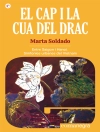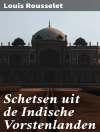In ‘A Journey to Katmandu (the Capital of Napaul), with the Camp of Jung Bahadoor, ‘ Laurence Oliphant blends travel writing with vivid ethnographic observations. Set against the backdrop of 19th-century Nepal, this work encapsulates not only the landscapes and cultures Oliphant encountered but also the political intricacies of a region often overlooked by Western audiences. His eloquent prose, peppered with rich descriptions and introspective musings, establishes a literary tradition that bridges adventure and enlightenment, resonating deeply with the Romantic interests of his time. The narrative is not merely a geographical exploration but also a profound investigation into the sociopolitical issues of the Indian subcontinent during British colonialism. Laurence Oliphant was not only a writer but also a diplomat and politician, whose unique experiences significantly shaped his worldview. Witnessing the decline of the Mughal Empire and the rise of British influence, Oliphant was driven by a desire to understand and portray the complexities of Eastern cultures. His journey with Jung Bahadoor, an influential Nepalese dignitary, serves as both an adventure and a crucial diplomatic encounter, marking his commitment to foster cross-cultural understanding. This compelling narrative is recommended for readers interested in travel literature, colonial history, and the intricate tapestry of Nepalese culture. Oliphant’s work invites readers not only to visualize the majestic Himalayas but also to engage deeply with the ethical dimensions of Empire and the universal quest for connection across cultures.
关于作者
Laurence Oliphant (1829–1888) was a British author, international traveler, and diplomat, recognized for his eclectic career and literary contributions. Born on August 3, 1829, in Cape Town, South Africa, Oliphant led a life characterized by adventure and intellectual curiosity. His extensive travels and experiences as a correspondent and secretary to Lord Elgin in China and Japan informed his distinguished writing career. Oliphant’s literary style often wove together his observations from his international exploits with wit and a keen eye for social and political nuances. A notable work, ‘A Journey to Katmandu (the Capital of Napaul), with the Camp of Jung Bahadoor’ (1852), documents his travel experiences in Nepal, showcasing his ability to captivate readers with vivid descriptions of landscapes and cultures. Oliphant’s writings are not only significant for their content but also for their contribution to 19th-century travel literature. His diverse oeuvre ranges from novels and travelogues to socio-political commentary, reflecting his multifaceted career and personal quest for spiritual and social truth. A controversial figure in his time, Oliphant’s legacy persists through his substantial contributions to the literary world, providing insights into the perspectives and discourses of the Victorian era.












